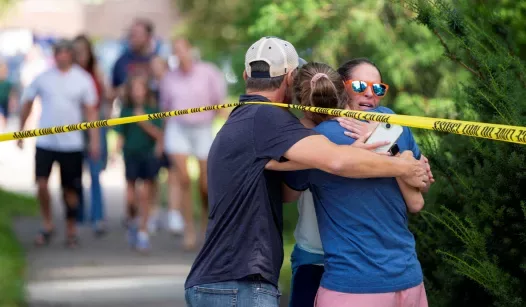In recent years, the topic of prayer in politics has ignited passionate discussions across the United States. While many Americans hold prayer as a fundamental aspect of their lives, there seems to be a growing divide in how different political factions perceive its place in public discourse. Some argue that the Democratic Party’s approach to prayer reflects a dismissive attitude, often viewed as rooted in arrogance. This perspective raises important questions about the role of spirituality in governance and the implications of sidelining such a significant cultural practice.
To understand the dynamics at play, it is essential to consider the historical context of prayer in American politics. From the founding fathers, who invoked divine guidance in the creation of the nation, to modern political leaders who often reference prayer during times of national crisis, the act of praying has been intertwined with American identity. However, the interpretation and acceptance of prayer have evolved, particularly within the Democratic Party, which has increasingly embraced a more secular approach.
Critics argue that this shift has led to a perception of elitism among some Democratic leaders. They suggest that dismissing prayer as an antiquated or irrelevant practice disregards the beliefs of millions of Americans who find solace and strength in their faith. This sentiment resonates particularly in rural and conservative communities, where prayer is often seen as a vital part of daily life and community cohesion.
On the other hand, many Democrats advocate for a separation of church and state, arguing that public policy should be based on reason and evidence rather than religious beliefs. This stance is particularly relevant in discussions surrounding issues like reproductive rights, LGBTQ+ rights, and healthcare, where personal beliefs often clash with the rights of others. The challenge lies in balancing respect for individual faith with the need for inclusive governance that protects the rights of all citizens.
This debate is not merely academic; it has real-world implications for how political parties engage with voters. As the Democratic Party seeks to broaden its appeal, especially in regions where religious values are paramount, it must navigate the fine line between maintaining its secular principles and acknowledging the significance of prayer for many constituents. Ignoring this aspect of American life could alienate potential supporters who feel their beliefs are undervalued.
Moreover, the role of prayer in political rhetoric cannot be overlooked. Politicians often use prayer as a tool to connect with their audience, especially during times of tragedy or national uncertainty. This practice can foster a sense of unity and shared purpose, transcending partisan divides. However, when perceived as insincere or opportunistic, it can lead to further disillusionment among voters.
As the nation moves closer to the next election cycle, the conversation around prayer and its place in politics will undoubtedly continue to evolve. For Democrats, the challenge will be to engage with the spiritual dimensions of their constituents’ lives without compromising their core values. This may involve finding ways to honor the role of prayer in public life while advocating for policies grounded in fairness and equality.
In conclusion, the discussion surrounding prayer in American politics reflects broader societal tensions between faith and secular governance. While some view the Democratic Party’s stance as dismissive, others see it as a necessary evolution towards inclusivity. Ultimately, the ability to bridge this divide may determine the party’s success in connecting with a diverse electorate. As Americans navigate this complex landscape, the dialogue around prayer will remain a vital aspect of the political conversation.
